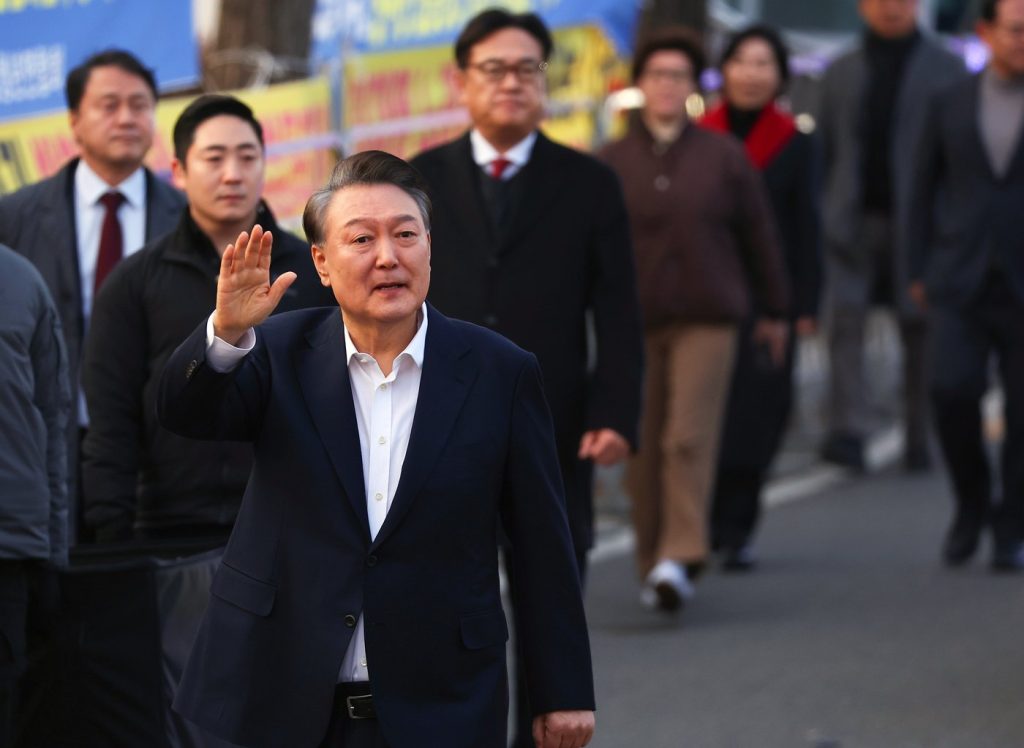SEOUL, South Korea (AP) – On March 8, 2025, South Korea's impeached President Yoon Suk Yeol was released from prison just one day after a Seoul court decided to cancel his arrest. This decision allows Yoon to stand trial for rebellion while remaining out of physical custody. His release follows significant political upheaval in the nation, particularly surrounding his controversial martial law decree issued on December 3, 2024, which had ignited a political crisis.
Footage from the scene showed Yoon joyfully acknowledging crowds of supporters upon his release. He waved his hands, clenched his fists, and bowed deeply to the crowd, who enthusiastically chanted his name while holding up both South Korean and U.S. flags. Following his release, Yoon entered a black van to return to his residence in Seoul.
In a statement released by his legal team, Yoon expressed gratitude toward the Seoul Central District Court for what he described as a courageous decision to rectify the unlawfulness surrounding his previous arrest. He also thanked his supporters and urged individuals who were on hunger strike in protest of his impeachment to reconsider their actions.
Yoon was originally arrested and indicted in January 2025 by prosecutors in response to the martial law decree, which was perceived as a significant threat to democracy and governance in South Korea. Following his indictment, the National Assembly, dominated by the opposition, moved to impeach him on December 14, 2024, resulting in his suspension from the presidency.
The Constitutional Court is currently in deliberation regarding whether to formally dismiss or reinstate Yoon. Should the court affirm his impeachment, a national election will be conducted within two months to select a successor.
The Seoul Central District Court cited the necessity of resolving legal challenges concerning the investigations into Yoon as a basis for their decision to release him. Yoon's legal representatives have contested that the investigative body responsible for detaining him lacked the legal jurisdiction to pursue charges related to rebellion.
Furthermore, the court noted that the formal period of Yoon's detention had expired before he was officially indicted. Following the ruling, prosecutors decided against filing an appeal on the court's decision to cancel Yoon's arrest. According to South Korean law, prosecutors retain the right to continue holding a suspect even after a court releases them, which raised questions about the implications of the prosecution's choice not to appeal.
The situation has drawn significant criticism from the main liberal opposition party, the Democratic Party, which led the impeachment efforts against Yoon. Party spokesperson Cho Seung-rae denounced the prosecutors as “henchmen” of Yoon, referencing his prior role as the prosecutor general. Cho urged the Constitutional Court to promptly dismiss Yoon to prevent further public unrest and anxiety.
As political tensions mount and supporters rally against his impeachment, the unfolding circumstances surrounding Yoon Suk Yeol's presidency represent a critical chapter in South Korea's ongoing struggle for political stability and adherence to democratic principles.










